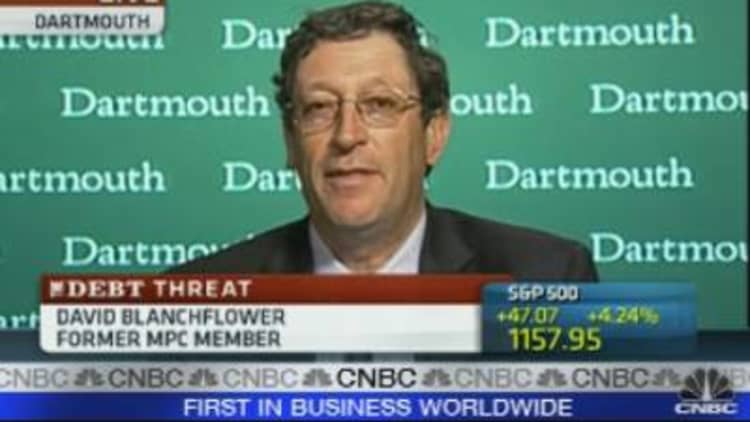The markets forced the European Union into its "shock and awe" rescue package, which means they will be tempted to repeat the tactic just to generate returns, David Blanchflower, professor of economics at Dartmouth College, told CNBC Monday.

"What the markets have realized is that no one's going to act until you create a crisis, but if you create a crisis they'll act in a big way," Blanchflower said.
Investors will now think that there's "a lot of money to be made on creating a crisis," he said. "The moral hazard problem is clearly there."
- Watch the full interview with David Blanchflower above.
In the wake of the bailout announcement, banking shares lead the overall market rally and the yield on Greek debt fell sharply, creating high levels of volatility. Such market moves could have hurt many investors' portfolios, but other could have made huge profits, Blanchflower pointed out.
Meanwhile, the reputation of the ECB and its president Jean-Claude Trichet have been damaged by the move, Blanchflower said.
Trichet made the debt crisis worse by backtracking on his stance over quantitative easing, according to Blanchflower, who was previously a rate-setting member of the Bank of England.
At a press conference last week Trichet said that the central bank would not be printing money to avert the growing debt crisis, but the buying of government debt is essentially that, according to Blanchflower.
"Central banking shouldn't be about terrible weekends where you have to do shock and awe. Central banking is supposed to be boring. It hasn't been for a long time and I don't think the ECB in any way has come out credibly," he said.
"This is about trying to calm nerves, what it's done is made nerves more fragile," he added.

